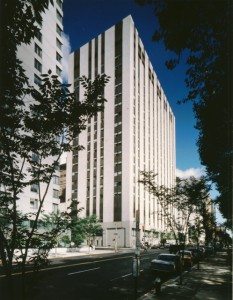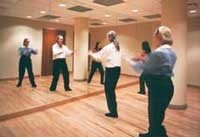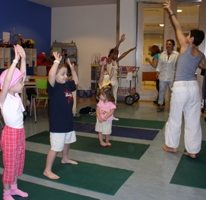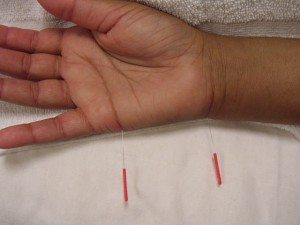Acupuncture, Reiki and hypnosis are some of the unconventional new weapons in the war against cancer…
Can acupuncture really alleviate the painful symptoms of cancer? Can massage therapy grant therapeutic balm to those whose bodies have been ravaged by radiation? And can exercise really increase your chances of bypassing cancer?
Meet Sarah, a breast cancer survivor, who has suffered from extreme fatigue after numerous chemotherapies. Yet after just three acupuncture sessions, she feels a remarkable surge in her energy level, going from 4 to 8 on a scale of one to ten.
Then there’s Tom, a neck cancer patient who has suffered from xerostomia or dry mouth after the radiation treatments which destroy salivary cells, and can neither neither eat nor speak properly – he too has turned to acupuncture for some powerfully good results.
Sarah and Tom (names have been changed) are just two among thousands who are waging the battle against cancer symptoms with many unlikely and unconventional tools – be it acupuncture, Reiki, hypnosis, music therapy, massage, yoga and meditation, or aerobics.
A decade ago, a physician who suggested any of these therapies to alleviate the symptoms of cancer would probably have been looked upon as a quack. Yet today these are some of the cutting edge solutions which are being researched and practiced at no less an institution than Memorial Sloan-Kettering Cancer Center in New York, which is considered the gold standard in cancer care.
While the hospital is world-class and known internationally for its crusading work in cancer care, the Integrative Medicine Service which promotes complementary therapies is less known, a kind of hidden asset.
The Bendheim Integrative Medicine Center is on 1st Avenue and 74th Street, about six blocks from the main hospital, a temple of tranquility with lots of greenery. This spa-like center was set up in 1999 and today sees over 20,000 people a year, offering patients and survivors an improved quality of life through unconventional methods.
“I think we are in a very new era of cancer care where we are able to cure people, and many millions of patients around the world are now cured of cancer or are at least in long term remission,” says Barrie Cassileth, PhD, Chief, and Integrative Medicine Service at MSKCC. “There are many concerns these survivors have and also many enduring symptoms, for these cancer treatments – because they are so successful- are also very difficult and often produce serious side effects and problems.”
Cassileth, who has worked in integrative medicine and studied the psycho-social aspects of cancer for more than 25 years, came to MSKCC to create this new center. “I found that cancer patients were using a wide array of therapies on their own, some ineffective and potentially harmful, others very helpful,” she says.
“My research, clinical activities, and policy efforts since that time have aimed to alert patients and oncology professionals to the sometimes useless or harmful therapies promoted incorrectly as viable cancer ‘treatments,’ and to ensure that complementary therapies are studied with appropriate scientific rigor and are available to patients as adjunctive care for the control of physical and emotional symptoms.”
Integrative medicine is a synthesis of topnotch cancer treatment plus attention to symptoms using complementary therapies, which are, as Cassileth points out, non-pharmacological and rational, and can provide symptom reliefand control of many toxicities associated with cancer that are otherwise not manageable.
 Indeed, this is a new field but is growing not only in the US but also in Australia, Western Europe, Japan and China. She says, “It’s becoming a worldwide activity based on the recognition that cancer care must include attention to the symptoms that patients suffer from and which really have to be managed.” Asked if Integrative Medicine was becoming a part of cancer care in India, she said, “In India, to my knowledge, there is not a formalized effort to bring these modalities into the mainstream cancer treatment context.”
Indeed, this is a new field but is growing not only in the US but also in Australia, Western Europe, Japan and China. She says, “It’s becoming a worldwide activity based on the recognition that cancer care must include attention to the symptoms that patients suffer from and which really have to be managed.” Asked if Integrative Medicine was becoming a part of cancer care in India, she said, “In India, to my knowledge, there is not a formalized effort to bring these modalities into the mainstream cancer treatment context.”
While many hospitals in the US are now offering education or some therapies or even doing research on Integrative therapies, this center remains the most complete with a full-blown program encompassing inpatient and out patient care, training for therapists and also cutting edge research and clinical trials studying the effects of such unconventional therapies.
Cassileth, who is the founding President of the International Society for Integrative Oncology, is the principal investigator of several research studies funded by the National Institutes of Health and also heads one of five NIH-supported Botanical Research Centers.
Jyothirmai Gubili, MS , Assistant Editor at the Integrative Medicine Service works on About Herbs, the website about herbs, botanicals and other products and their effects on cancer patients (http://www.mskcc.org/aboutherbs)
“A lot of cancer patients take dietary supplements and herbs and we often have questions from oncologists as to the true effectiveness of these herbal medicines and supplements,” she says. “Traditionally herbs have been used around the world in many civilizations for medicinal use but specifically for cancer there isn’t much evidence, and that’s the key issue here. Many patients aren’t aware that herbs have active compounds and can interfere with medication.”
Take turmeric, for instance:In vitro studies indicate inhibition of cytochrome P450 1A1, which may result in increased blood levels of certain medications. Garlic may induce the cytochrome p450 3A4 isoenzyme, resulting in enhanced metabolism (and decreased effectiveness) of certain drugs.
Herbs are investigated at the Botanical Research Center for their anti-tumor potential for which it received a grant and collaborates with Cornell University and the Institute of Chinese Medicines in Hong Kong. Many laboratory studies and clinic trials are underway, looking at botanical agents, usually compounds from China. As Cassileth points out, the botanicals from India are not being researched as Ayurvedic compounds contain hundreds of different constituents and it’s virtually impossible to study them.
The center works in clinical research and lab investigation trials within many departments of Sloan Kettering. According to Cassileth, “We are looking for something that can enhance the benefits of chemotherapy or surgery or radiation therapy .in treating cancer.We focus on botanicals that have the ability to enhance immune functions in positive ways so they give an extra boost to the person’s own body in fighting the cancer.”
There have been several studies underway for years at the center on various botanicals but there is special interest in medicinal mushroom extracts. As she explains it, these have the ability to change immune functions in the body and there is ongoing research to determine the interaction.
The center offers Mind Body therapies, massage, meditation, hypnosis, yoga, Reiki, acupuncture, and music therapy as well as physical fitness and exercise programs.
“It was a taboo until a few years ago for a cancer patient or survivor to get out of the chair and exercise but recent studies have shown that exercise can help patients improve their quality of life,” says Gubili, who is from Hyderabad.
 Tara, a breast cancer survivor who joined the exercise regimen reported increased strength and flexibility and also lost the excess weight she had gained following the radiation treatments. The fitness expert not only offered counseling but tailored the program to her needs.
Tara, a breast cancer survivor who joined the exercise regimen reported increased strength and flexibility and also lost the excess weight she had gained following the radiation treatments. The fitness expert not only offered counseling but tailored the program to her needs.
The benefits of these varied therapies are that pain, nausea and insomnia are decreased and patients are more relaxed during procedures and treatments. They are able to cope with anxiety, stress and depression and the traumas of changes in their body and lifestyle, such as amputation or loss of hair.
“Patients tell us all the time that they never could have gotten through their cancer treatments without the therapies we offer,” says Cassileth. Many are able to reduce their intake of pain medication with the help of meditation and massage which can alleviate muscle dysfunction.
Acupuncture has been particularly helpful for patients who have dry mouth, caused by radiation which destroys the salivary glands. “Their lives are really ruined and there’s no way to treat this and patients are immobilized. Acupuncture, however, works in many cases and it’s a remarkable life change. For the first time patients, sometimes in years,are able to talk and eat properly because we are able to bring back salivation with acupuncture.”
Indeed, new data from a randomized, controlled trial at the center found that acupuncture provided significant reductions in pain, dysfunction, and dry mouth in head and neck cancer patients after neck dissection. Seventy patients at the center participated in the study and were randomized to receive either acupuncture or usual care, which includes recommendations of physical therapy exercises and the use of anti-inflammatory drugs.
The treatment group received four sessions of acupuncture over the course of approximately four weeks. Both groups were evaluated using the Constant-Murley scale, a composite measure of pain, function, and activities of daily living. Pain and mobility improved in 39 percent of the patients receiving acupuncture, compared to a 7 percent improvement in the group that received usual care. An added benefit of acupuncture was significant reduction of reported xerostomia, or extreme dry mouth.
Cassileth believes integrative medicine helps patients and survivors alike: “Neuropathic problems or extreme dry mouth can endure for years or decades and sometimes for the patient’s entire life. These cannot be treated by mainstream medicine – we can treat them.”
She also underscores the role of physical activity as being crucial, from bed yoga to chair aerobics to more active exercises. “Fitness is probably the only therapy where we directly impact survival. Any cancer patient should walk 20 minutes a day briskly and that actually increases the chances of survival by 50 percent. The results are very dramatic – it’s more than any chemotherapy.”
Integrative Medicine, while not curing cancer in any way, can help in even advanced metastasis by bringing about symptoms relief, and giving patients a more positive attitude. Says Gubili: “It’s about getting patients to express themselves creatively. And I think that helps – you’re still alive and the goal is to help you with the illness you’re going through.”
Sarah, in her 20’s, was terminally ill with leukemia. Being so young, she fell into a deep depression, becoming withdrawn and uncommunicative, even with her own family. She had loved playing the guitar and piano but had given it all up as the disease progressed. Music therapy was the answer; the therapist brought in the guitar and a keyboard and as they played her favorite songs, the smile came back to her lips and in the final days, music helped the family to come together again.
Our Kids Kicking Cancer Program
 Black belt martial art instructors empower young patients to partner in their healing – physically, spiritually and emotionally. Martial arts moves are accompanied by imagery, meditation and breathing techniques that teach how to push away pain, fear and anger. Patients are taught to develop the true inner power that is the focus of this ancient art. Sessions are offered in group and individual settings at bedside. Karate forms are developed to maximize the potential of each student so that he or she can use these techniques wherever and whenever needed the most.
Black belt martial art instructors empower young patients to partner in their healing – physically, spiritually and emotionally. Martial arts moves are accompanied by imagery, meditation and breathing techniques that teach how to push away pain, fear and anger. Patients are taught to develop the true inner power that is the focus of this ancient art. Sessions are offered in group and individual settings at bedside. Karate forms are developed to maximize the potential of each student so that he or she can use these techniques wherever and whenever needed the most.
Source: MSKCC.
FACTS ABOUT HERBS
The Integrative Medicine Service’s Web site, About Herbs, offers evidence-based information about herbs, vitamins, and unproved cancer treatments at no charge to professionals and the public.
In most cases, it is not advisable to use herbs for children or for pregnant or breast-feeding women. All herbs and other supplements should be stopped about one week before surgery because they may interact with anesthesia or interfere with normal clotting. There is a great need for patient education in this matter because improper use, chronic usage or overdose of many botanicals and supplements can result in adverse reactions.
Source: MSKCC
Photo credit: MSKCC

